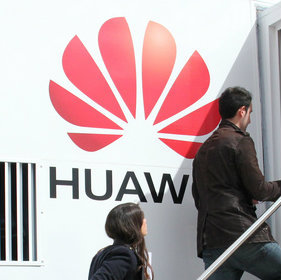
BARCELONA -- MWC19 -- Service providers outside China and the US are developing contingency plans in case American authorities ban Huawei and ZTE from buying any US components, Light Reading has learned.
The plans include stockpiling equipment and drawing up contracts that would guarantee access to warehouses where equipment is stored. The move is the result of previous experience: The absence of such agreements meant telco executives could not legally access storage facilities holding parts they had paid for when ZTE was temporarily banned from acquiring US components last year.
That ban, lifted when ZTE agreed to pay a fine and make organizational changes, forced the Chinese vendor to cease operations and nearly drove it out of business. ZTE had earlier been charged by the US with violating trade sanctions.
Another clause in at least one set of contracts would cover the transfer of knowledge and expertise from vendor to customer in the event of a US ban.
The service providers in question are active in Europe and Asia. They worry a US ban on the sale of components to Huawei or ZTE would cause disruption as they build and upgrade networks.
Italian mobile operator Wind Tre last year blamed the US measures against ZTE for slowing down the pace of work on network modernization, saying this had led to customer losses during the period in question. (NOTE: Wind Tre did not speak with Light Reading for this article.)
US authorities have ramped up their campaign against Huawei and ZTE at this week's Mobile World Congress in Barcelona, with news coverage of the affair threatening to overshadow the entire event.
A US delegation attending the show has reportedly urged European governments and operators to sever their connections with the Chinese equipment vendors. The push comes shortly after US Secretary of State Mike Pompeo, during a recent tour of eastern Europe, effectively told several governments in the region to choose between Huawei and a favorable relationship with the US.
The US argument is that Huawei poses a threat to national security because of its links to the Chinese government: Any spyware included in its products would allow the Chinese to monitor other countries, say opponents. Huawei has repeatedly denied the allegations.
In North America, US authorities are currently pursuing criminal charges against Meng Wanzhou, Huawei's chief financial officer, who is being detained in Canada but faces extradition to the US. Prosecutors say Meng lied to a US bank about Huawei's links to Skycom, an equipment maker that sold gear in Iran, one of several countries subject to US trade sanctions. The allegation Skycom is really a Huawei subsidiary is denied by the Chinese vendor.
If Huawei is found guilty of the charges against it, prosecutors may push for a ban on the sale of components to the firm. The disruption to its supply chain would have knock-on effects for customers buying Huawei's products.
You're invited to attend Light Reading’s Big 5G Event! Formerly the Big Communications Event and 5G North America, Big 5G is where telecom's brightest minds deliver the critical insight needed to piece together the 5G puzzle. We'll see you May 6-8 in Denver -- communications service providers get in free!
Although it is less heavily reliant than ZTE on US technology, Huawei is known to source optical components from NeoPhotonics, Finisar and Lumentum. Previously, it has also bought server chips from semiconductor giant Intel, although it has recently been showing off in-house alternatives including the Ascend 310 and the Kunpeng 920, which are intended to provide support for artificially intelligent applications.
Huawei, which owns a fabless semiconductor company called HiSilicon, appears to have intensified efforts to develop its own technologies in the past year. A full ban on US component and software sales to the company could be a major setback for its consumer business, whose smartphones and other devices feature US components.
ZTE was previously banned from acquiring US technology after violating trade sanctions against Iran. Although lawmakers eventually lifted that ban, US opponents are still campaigning against it. In November, US senators Chris Van Hollen and Marco Rubio were said to have called for a new investigation into ZTE's activities in Venezuela, another country on the US blacklist.
Several Huawei customers have publicly voiced concern about the current campaign against it.
Vodafone CEO Nick Read told reporters earlier this week that banning Huawei would delay the rollout of next-generation 5G technology by two years in Europe.
Turkcell's Kaan Terzioglu rejected the US security claims, describing Huawei's track record as "impeccable." He is among observers who believe the US campaign is driven by fear of China's growing technological power.
Some financial analysts see the backlash against Huawei as a positive development for rival suppliers Ericsson and Nokia, which could pick up 5G business at Huawei's expense. But there is also concern in the service provider community that neither of the European firms has the resources to replace Huawei in European networks.
Arun Bansal, who manages Ericsson's business in Europe and Latin America, dismissed that suggestion as a "myth" in a recent conversation with Light Reading.
"There are more than 35,000 people employed in Europe, which is by far the largest number in any region," he said. "We have the technology available and have demonstrated that with our R&D capability. We have demonstrated with our ten commercial deployments that we have the products available."
Ericsson, which employs about 95,000 people worldwide, has named ten customers that are buying its 5G products. Nokia recently said it has 20 5G deals worldwide, while Huawei claims to have signed around 30, although neither has disclosed as much information as Ericsson about customers. This week, Middle East operator Saudi Telecom Company (STC) announced it was working with Huawei, Ericsson and Nokia to build out its 5G network, while Swiss operator Sunrise and South African competitive operator Rain were unveiled as Huawei 5G customers.
Related posts:
— Iain Morris, International Editor, Light Reading
About the Author(s)
You May Also Like











